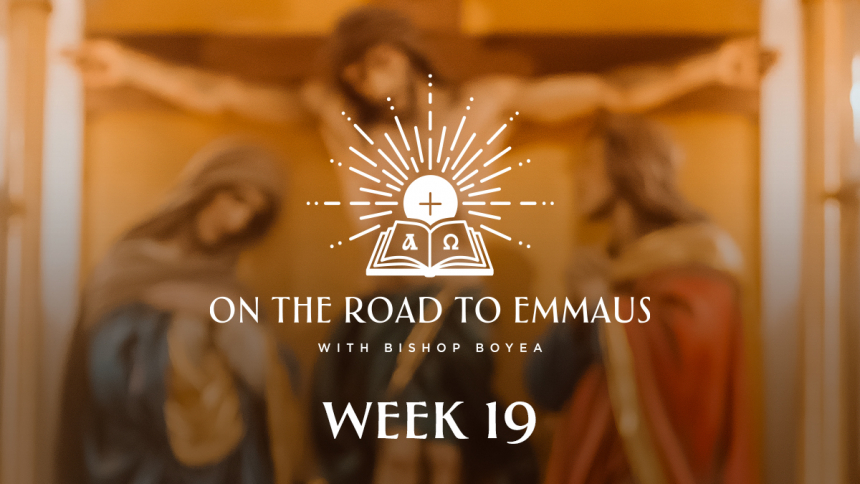
Friday, October 20, 2023
Dear Sisters and Brothers in Christ,
Credo! I believe! What a wonderful thing to be able to say. As you may recall, my challenge last week to those of us On the Road to Emmaus was to pray the Creed each day. The Creed is that great litany of belief we profess together at Holy Mass each Sunday as well as on several other major feast days across the Church’s year.
As we also learned last week, the first version of the Creed was composed in the 4th century in the city of Ephesus. That’s in modern-day Turkey. It was there that the bishops of the Church gathered in the year 325 AD to counter the heresy – or wrong belief – which was questioning the full divinity of Jesus Christ.
The text of our present-day Creed was finalized in 451 AD at another gathering of bishops held at Constantinople. That’s modern-day Istanbul. This time the task was to uphold the Church’s belief in the divinity of the Holy Spirit, and Mary being the Mother of God, against those who were denying these truths.
So, what can we learn from these two historical episodes? Well, lots of things but here’s just one: Note how the Church has always tended to define what she believes in response to the rise of erroneous notions regarding matters of faith and morals. In that sense, her teaching authority is exercised in a reactive rather than proactive way. Her divinely-ordained task during times of confusion is to clarify what is true from what is false in order to confirm the faith of Christians and give reason for the hope that is within us to those who are not yet Christian.
This has usually been done through a gathering of the world’s bishops – at the invitation of the Pope – in order to decide upon matters of faith and morals in communion with the Bishop of Rome.
These meetings are known as ecumenical councils. There have been 21 of them since the founding of the Church two millennia ago. The most recent was the Second Vatican Council which took place in Rome between 1962 and 1965.
The years following the closure of the Council could certainly be described as “a time of confusion” with many wild and not-so-wonderful things being claimed in the name of “the spirit of the Council” that were not actually mandated by the genuinely wonderful documents of the Second Vatican Council as approved by the Council Fathers.
Now spool on two decades: In 1985 Pope Saint John Paul II convened a Synod of Bishops in Rome to evaluate the progress of implementing the Second Vatican Council’s goals upon the 20th anniversary of its closure. Recognizing that spirt of confusion that was still around, the bishops expressed a desire that “a catechism or compendium of all Catholic doctrine regarding both faith and morals be composed” adding that “the presentation of doctrine must be biblical and liturgical. It must be sound doctrine suited to the present life of Christians”.
The result was The Catechism of the Catholic Church. It was published in 1992. Its production was overseen by the then-Prefect of the Congregation for the Doctrine of the Faith, Cardinal Joseph Ratzinger, later Pope Benedict XVI. It beautifully presents the faith of the Church as rooted in Scripture and Tradition. This includes her teaching upon the Most Holy Eucharist.
So that’s my challenge for this week: Read through The Catechism of the Catholic Church’s section on the Eucharist and deepen your knowledge concerning what we believe about the Holy Eucharist and why. That's paragraphs 1322 to 1419. Click here to read.
It's quite a chunky section but if you read it daily you’ll only need get through 15 paragraphs a day. What difference will reading this section make to your life? Here’s what one of our fellow pilgrims On the Road to Emmaus.
She is Dr. Mary Healy. Dr. Healy is a professor of Sacred Scripture at Sacred Heart Major Seminary in Detroit and an international speaker on topics related to Scripture, evangelization, healing, and the spiritual life. Enjoy the film!
+ Earl Boyea
Bishop of Lansing
